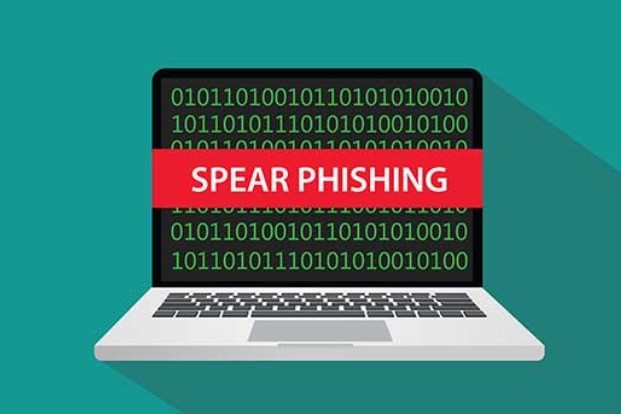Have you ever received a call from an individual, asking you for your personal information and passwords while posing as someone you might trust such as a Charter Spectrum Internet representative, for instance? Well, then you might be a victim of spear phishing! But, what is it? Well, Spear phishing is the act of posing as a trustworthy, legitimate business to gain access to your personal accounts. Such people trap you into conversations to extract critical data from you, like your email and account passwords. Cybercriminals can use such information to hack into your private life and finance. No one wants that! So, here is everything you should know about avoiding being phished.
Table of Contents
How Spear Phishing Happens
Threat actors continuously search for exploitation opportunities. And every once in a while, they successfully trap a fish in their net. They put a lot of effort and time into doing their research and organizing a conversation that may lead to successful phishing. And they spend so much energy on it because the results are almost always worth it. The more effort the threat actor puts into the trap, the bigger the reward he’s expecting.
For example, if a phisher has done his research and knows that you have a lot of money in your bank account, he will spend a lot of time, energy, and patience convincing you to give him important information. Once he finally gets what he wants, he can extract a lot of money from your account without giving you any traces to follow.
There are three significant steps in the process of spear phishing:
#1. Choosing Victims
Victims are chosen based on their education level, familiarity with technology, and awareness of such crimes. For example, an English teacher might not be very enthusiastic about technology, so there’s a much better chance they will get into the trap compared to an engineer who works with software all day and knows how phishing works.
#2. Gathering information
Information is gathered in various ways. They can get it from your social media handles, business profiles, and anything else you have opened to the public. If the threat actor is tech-savvy, he might even be able to go further than that. Get more information data management assessment.
#3. Contact and Phishing
Once the target is selected, and the information is gathered, the threat actor contacts them. It could happen via text message, email, voicemail, or even a phone call. They could initiate the conversation regarding anything, including your bank account, health insurance, or even your internet bills.
Who Might Be At Risk?
These threat actors might choose anyone at any time. But, there is still a criterion that can be used to see whether you’re at risk:
- If you have a lot of information shared on your public profiles, like your birth date, your residence, where you have studied, your job experience.
- If you tend to follow instructions in a random email and click on every link that is provided to you.
- If you have weak passwords and obvious safety questions.
How to Spot a Phishing Attack
Here are a few things that you can use to spot a phishing attack:
- Illegitimate email address or phone number
- An urgent message that requires action within a limited time frame
- A tone that doesn’t go well with the persona of the business.
- Irregularities and major language mistakes in the text
- Requirements that ask for personal details like passwords and PINs
How to Prevent and Stop the Phishing
Prevention is better than cure. So, make sure that you don’t click on any random links that people send you on social media, text messages, or emails. Avoid sharing too much information with salespersons or anyone online. Take off any unnecessary details from your social media to prevent these phishers from getting information about you.
The best way to stop being phished is by enabling multi-factor authentication on all of your accounts. Even if you end up replying to an email or clicking anywhere, you will get a notification if an intruder is trying to get into your account.
Conclusion
Spear phishing has become a common crime. Security systems are getting better, but so are threat actors. So, it’s up to you to always be vigilant, don’t open links sent by strangers online, and keep your personal information to yourself.











